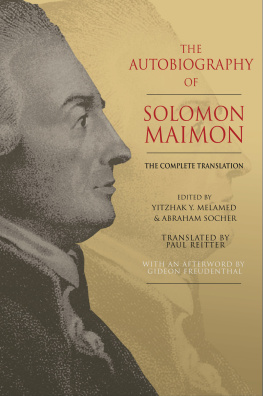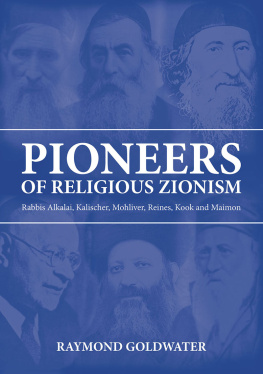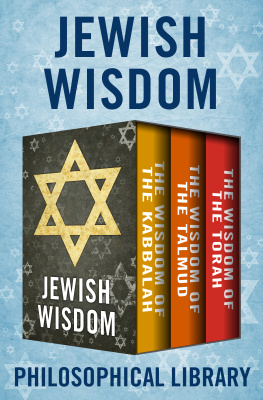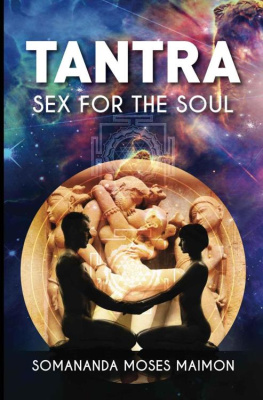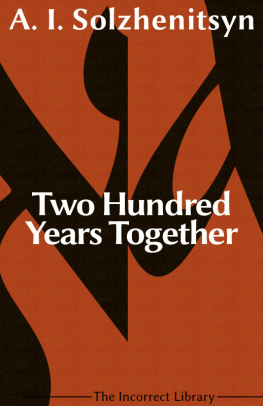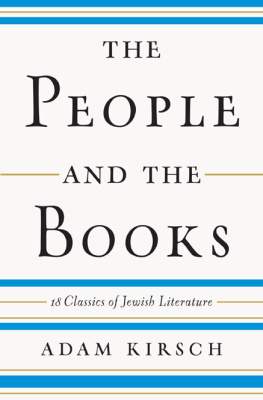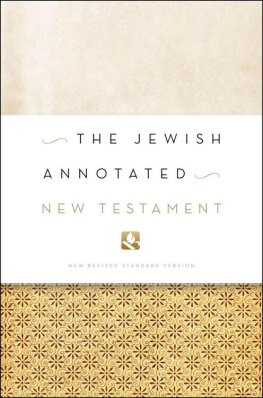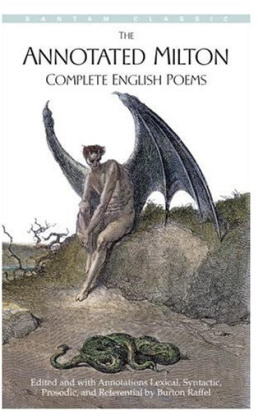Solomon Maimon - The Autobiography of Solomon Maimon: The Complete Translation
Here you can read online Solomon Maimon - The Autobiography of Solomon Maimon: The Complete Translation full text of the book (entire story) in english for free. Download pdf and epub, get meaning, cover and reviews about this ebook. year: 2019, publisher: Princeton University Press, genre: Non-fiction / History. Description of the work, (preface) as well as reviews are available. Best literature library LitArk.com created for fans of good reading and offers a wide selection of genres:
Romance novel
Science fiction
Adventure
Detective
Science
History
Home and family
Prose
Art
Politics
Computer
Non-fiction
Religion
Business
Children
Humor
Choose a favorite category and find really read worthwhile books. Enjoy immersion in the world of imagination, feel the emotions of the characters or learn something new for yourself, make an fascinating discovery.
- Book:The Autobiography of Solomon Maimon: The Complete Translation
- Author:
- Publisher:Princeton University Press
- Genre:
- Year:2019
- Rating:4 / 5
- Favourites:Add to favourites
- Your mark:
The Autobiography of Solomon Maimon: The Complete Translation: summary, description and annotation
We offer to read an annotation, description, summary or preface (depends on what the author of the book "The Autobiography of Solomon Maimon: The Complete Translation" wrote himself). If you haven't found the necessary information about the book — write in the comments, we will try to find it.
Solomon Maimons autobiography has delighted readers for more than two hundred years, from Goethe, Schiller, and George Eliot to Walter Benjamin and Hannah Arendt. The American poet and critic Adam Kirsch has named it one of the most crucial Jewish books of modern times. Here is the first complete and annotated English edition of this enduring and lively work.
Born into a down-on-its-luck provincial Jewish family in 1753, Maimon quickly distinguished himself as a prodigy in learning. Even as a young child, he chafed at the constraints of his Talmudic education and rabbinical training. He recounts how he sought stimulation in the Hasidic community and among students of the Kabbalah--and offers rare and often wickedly funny accounts of both. After a series of picaresque misadventures, Maimon reached Berlin, where he became part of the citys famed Jewish Enlightenment and achieved the philosophical education he so desperately wanted, winning acclaim for being the sharpest of Kants critics, as Kant himself described him.
This new edition restores text cut from the abridged 1888 translation by J. Clark Murray, which has long been the only available English edition. Paul Reitters translation is brilliantly sensitive to the subtleties of Maimons prose while providing a fluid rendering that contemporary readers will enjoy, and is accompanied by an introduction and notes by Yitzhak Melamed and Abraham Socher that give invaluable insights into Maimon and his extraordinary life. The book also features an afterword by Gideon Freudenthal that provides an authoritative overview of Maimons contribution to modern philosophy.
Solomon Maimon: author's other books
Who wrote The Autobiography of Solomon Maimon: The Complete Translation? Find out the surname, the name of the author of the book and a list of all author's works by series.

